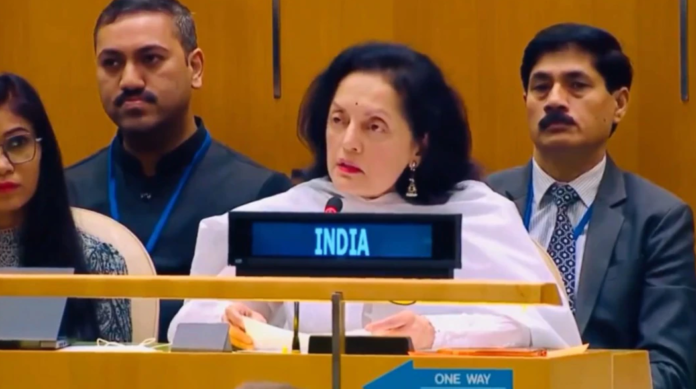In a significant move at the United Nations General Assembly, India underscored the imperative to acknowledge and address religious phobias beyond the scope of Abrahamic religions, emphasizing the plight of Hindus, Buddhists, and Sikhs. The condemnation of acts motivated by anti-Semitism, Christianophobia, and Islamophobia was articulated alongside a call to recognize contemporary forms of religious phobias affecting these non-Abrahamic faiths.
India’s Permanent Representative to the UN, Ambassador Ruchira Kamboj, highlighted the emergence of anti-Hindu, anti-Buddhist, and anti-Sikh elements, citing increasing attacks on places of worship and the propagation of hatred against these communities. Ambassador Kamboj’s remarks came as the UN General Assembly adopted a resolution sponsored by Pakistan, aimed at combating anti-Muslim hate on the occasion of the International Day to Combat Islamophobia.
However, India abstained from the resolution vote, expressing concerns about the resolution’s exclusive focus on Islamophobia. Ambassador Kamboj cautioned against allocating resources solely to combat Islamophobia, fearing it might perpetuate exclusion and inequality by neglecting similar challenges faced by other faiths. She articulated India’s principled opposition to establishing a precedent of appointing a UN special envoy based on a specific religion, urging against the potential division of the UN along religious lines.
The resolution, adopted by a significant majority, encountered resistance from a group of European nations, who proposed amendments seeking to alter key language. Despite this, the resolution passed with a vote of 113 in favor and 44 abstentions.
UN Secretary-General António Guterres echoed the urgency to combat all forms of bigotry, emphasizing the need to confront divisive rhetoric and safeguard religious freedom. Guterres highlighted the role of online hate speech in fueling real-life violence, calling for concerted efforts to promote mutual respect, understanding, and social cohesion.
The International Day to Combat Islamophobia was established in response to the tragic attacks on mosques in Christchurch, New Zealand, in 2019, underscoring the global commitment to addressing religious intolerance and fostering inclusive societies.



